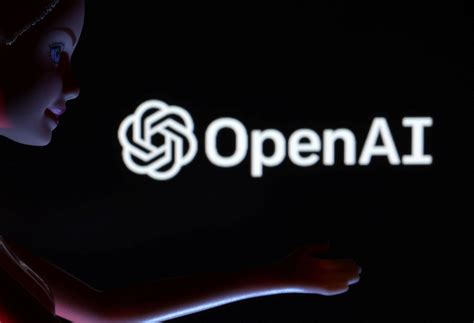OpenAI’s recent announcement of appointing Sarah Friar as their Chief Financial Officer (CFO) and Kevin Weil as Chief Product Officer (CPO) marks a significant strategic shift for the company. The tech community has been buzzing with speculation and analysis around this move, hinting that OpenAI might be gearing up to expand their consumer-facing applications. Friar and Weil bring sterling credentials, with backgrounds in both consumer and enterprise tech, suggesting a broader vision for OpenAI that goes beyond their current focus on APIs and backend integration.
The decision to bring in talent from consumer tech is indeed intriguing. Historically, OpenAI has been seen largely as a platform business, offering tools, models, and APIs for developers and businesses to create new applications and services. This has fostered a rich ecosystem of innovation, where the company’s technology drives high-margin revenue. However, by appointing executives with such a strong consumer orientation, OpenAI seems poised to make a bigger play in the consumer tech space. It’s a tactical move to ensure they are not solely dependent on third-party innovation but also lead the charge in making their technology directly accessible to end-users.
Commentators in the tech community speculate that this move could help OpenAI mitigate the risk of disintermediation. If OpenAI remained exclusive to backend API services, they could be susceptible to other companies swapping out their AI models in favor of competitors like Meta. By focusing on building strong consumer-facing applications like ChatGPT, OpenAI can establish a direct line to the consumer, making their technology harder to replace. Notably, a user interface built by OpenAI itself can incorporate unique capabilities that may not be available through their API, ensuring their model remains the best interface for interacting with their technology.
The new hires are reflective of a strategic alignment seen in other successful platform businesses. Drawing parallels with tech giants like Microsoft and Google, who have also effectively balanced their roles as platform providers and consumer product leaders, OpenAI aims to create a similar dual-focus strategy. The presence of a top-tier product leader like Kevin Weil, who has an impressive track record at Instagram, further underscores this ambition. OpenAI’s platform potential can be significantly enhanced by the consumer-centric innovations Weil is expected to bring.
Sarah Friar’s appointment should also not be underestimated. Her experience at Square, where she was known for her significant contributions as CFO, complements this new strategic direction. There is an acknowledgment that while enterprise services and APIs form the backbone of OpenAI’s revenue model, consumer applications are critical for long-term growth and stability. The balance between B2B services and consumer-driven innovations will likely be crucial as OpenAI navigates the competitive landscape of AI technology.
The conversation around these appointments also brings into view the broader vision of Artificial General Intelligence (AGI). There are divergent opinions on how imminent AGI is and how OpenAI’s current strategic moves fit into this vision. Some believe that the focus should be on ensuring dominance of their AI models while gradually moving towards AGI, while others express skepticism about the likelihood of achieving AGI in the near term. Nonetheless, OpenAI’s structure, with a strong focus on product development and financial oversights, positions them to leverage current AI capabilities effectively while keeping an eye on future possibilities.
Given the competitive nature of the tech industry, the integration of consumer and enterprise backgrounds into their leadership certainly seems prudent. As one user pointed out, the tech world often rewards those who can traverse both domains effectively. By harmonizing the expertise from different sectors, OpenAI is gearing itself to not just survive but thrive in a market that is evolving rapidly. They are preparing not just to deliver backend solutions but to also have a compelling consumer narrative.
Moreover, this move can be seen as a response to the various challenges faced by tech companies in today’s environment. From managing intellectual property effectively to mitigating the risk of algorithmic bias and ensuring sustainable AI development, leaders with diverse backgrounds can provide fresh perspectives. Sarah Friar and Kevin Weil’s experiences at Square and Instagram respectively, equip them to navigate these challenges thoughtfully, ensuring that OpenAI not only innovates but also does so responsibly.
Ultimately, the hiring of Sarah Friar and Kevin Weil symbolizes OpenAI’s broader strategic goals and their commitment to lead in both enterprise and consumer spaces. It is an acknowledgment that to be at the forefront of AI, strategic foresight, strong leadership, and the ability to bridge the gap between technology and user experience are imperative. As OpenAI continues to push the boundaries of what AI can achieve, the contributions of Friar and Weil will undoubtedly be crucial in shaping the future of the company.
For more insights into OpenAI’s platform business strategies, you may refer to the informative discussions led by tech experts such as Dave Patterson and Scott Aaronson. Additionally, understanding the broader implications of platform businesses can be enriched by exploring works by Prof. David Yoffie at HBS, whose case studies provide a comprehensive view on platform dynamics in the tech industry.


Leave a Reply